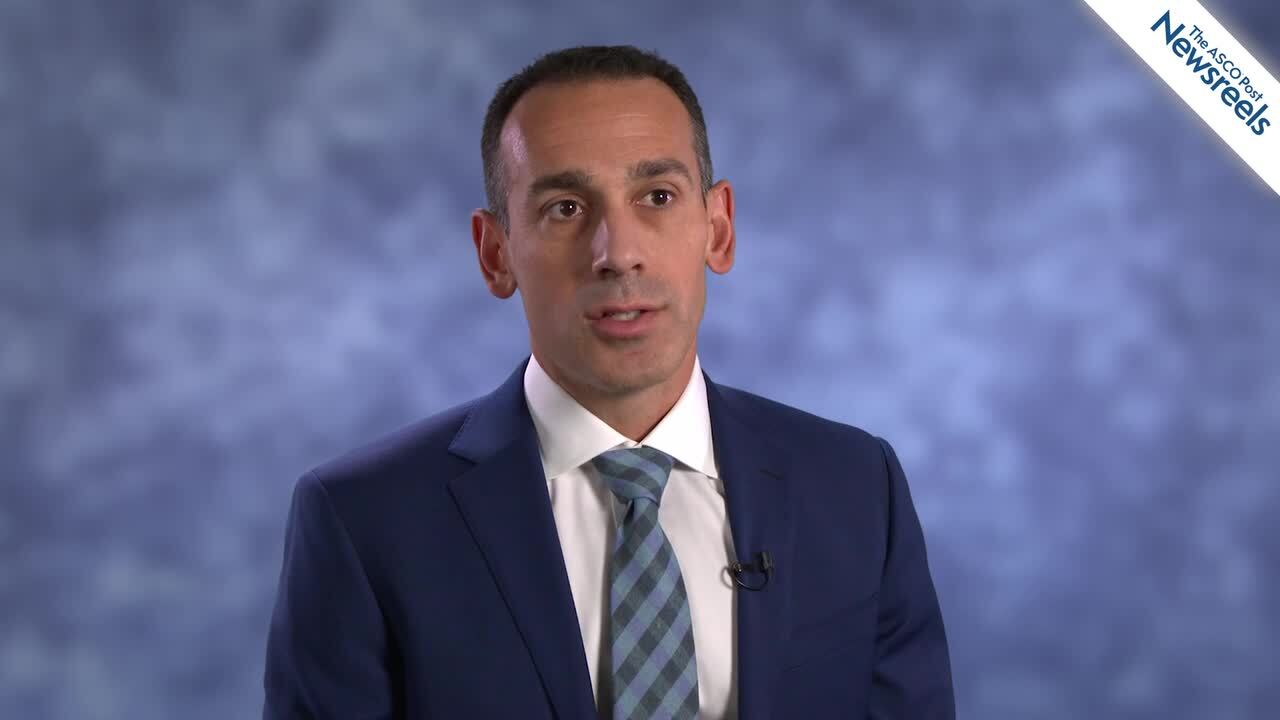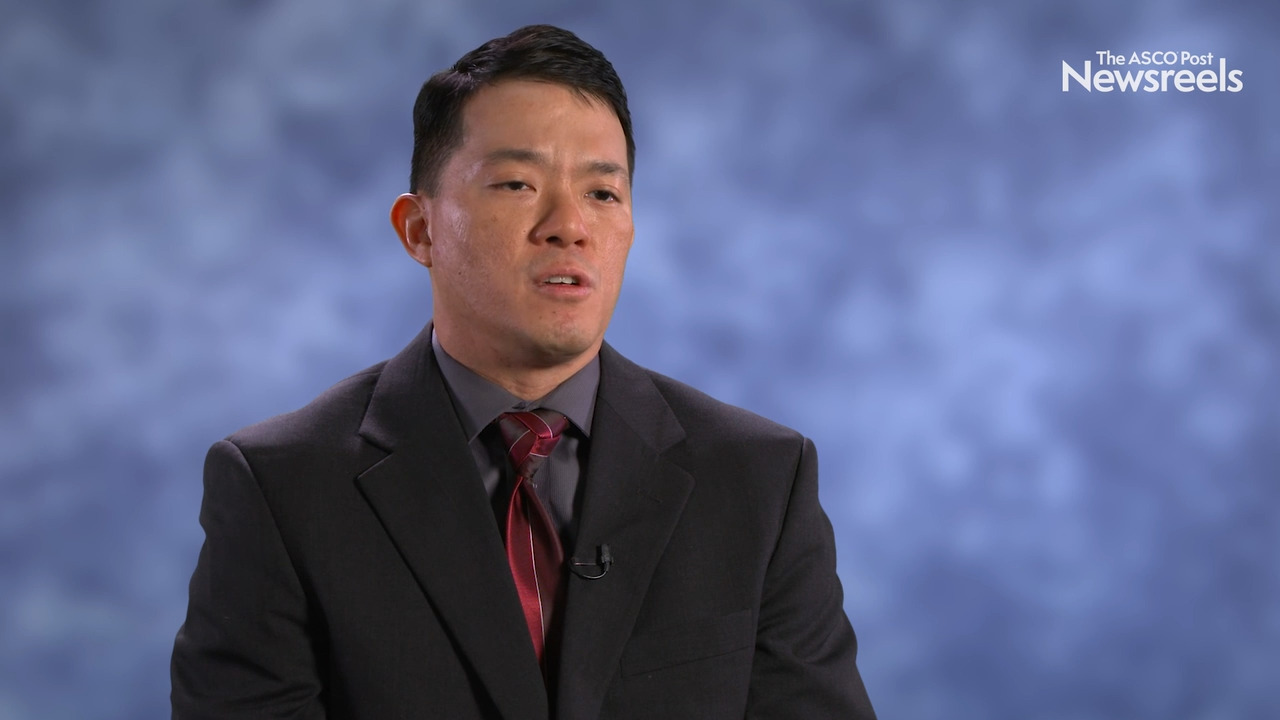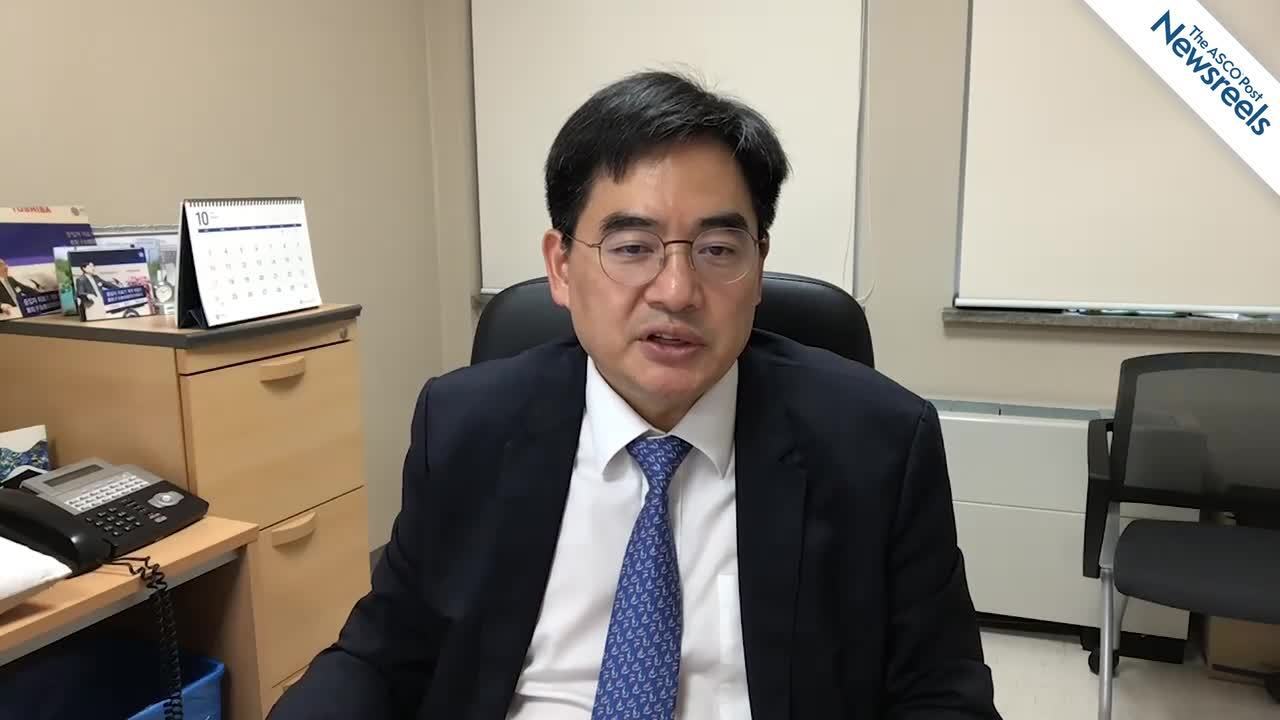Mark K. Buyyounouski, MD, MS, on Prostate Cancer: Hypofractionated vs Conventional Radiotherapy After Surgery
2021 ASTRO Annual Meeting
Mark K. Buyyounouski, MD, MS, of Stanford University, discusses phase III results from the NRG Oncology GU003 trial, which showed that, post-prostatectomy, using fewer—but higher—doses of radiation does not appear to increase long-term side effects or reduce quality of life when compared with conventional radiation treatment (Abstract 3).
The ASCO Post Staff
Daniel F. Hayes, MD, of the University of Michigan Rogel Cancer Center, discusses whether liquid biopsies can provide insight into the challenge of curing metastatic breast and possibly other cancers, how oligometastases are similar to a primary cancer, and why some kinds of local therapy for widespread disease might improve survival and lead to a cure.
The ASCO Post Staff
Diana D. Shi, MD, of Dana-Farber Cancer Institute and Brigham and Women’s Cancer Center, discusses studies being planned and already underway to test BAY 2402234, a de novo pyrimidine synthesis inhibitor that possibly could be used clinically to target IDH-mutant gliomas and may act as a tumor-selective radiosensitizer (Abstract 167).
The ASCO Post Staff
David A. Palma, MD, PhD, of Ontario’s London Health Sciences Centre, discusses results of the ORATOR2 study, which compared two treatment options that could be de-escalated for patients with HPV-associated oropharyngeal squamous cell carcinoma: a lower-dose radiation approach (6 weeks instead of 7, often with chemotherapy) vs a transoral surgical approach (with low-dose radiation afterward, for 5 weeks) (Abstract LBA2).
The ASCO Post Staff
Daniel J. Ma, MD, of the Mayo Clinic Alix School of Medicine, discusses results from a phase III study of patients with HPV-associated oropharyngeal squamous cell carcinoma. Comparing a 2-week course of de-escalated adjuvant radiation therapy with the standard 6-week course, investigators found that the shorter treatment appeared to have less toxicity, higher quality of life, and similar disease control as the longer standard-of-care treatment (Abstract LBA1).
The ASCO Post Staff
Yongbae Kim, MD, of the Yonsei Cancer Center and Yonsei University College of Medicine, discusses findings that showed the use of internal mammary area irradiation (IMNI) in regional nodal irradiation did not significantly improve disease-free survival for women with node-positive breast cancer. However, patients with medially or centrally located tumors may be considered for treatment with IMNI (Abstract 2).





